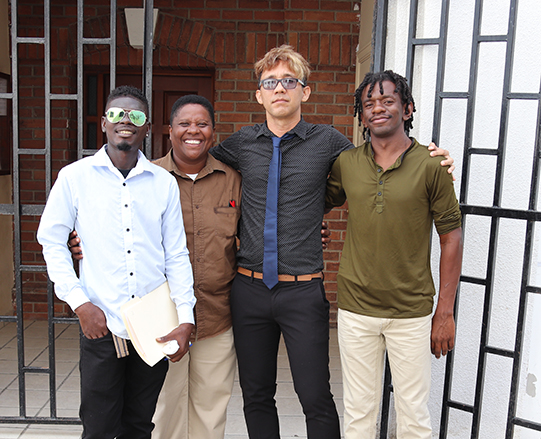Section 53 of the Belize Criminal Code, brought into force under British colonial rule, states that ‘Every person who has carnal knowledge against the order of nature with any person or animal shall be liable to imprisonment for ten years.’ While convictions under Section 53 in Belize were rare, the law carried a sentence of up ten years’ imprisonment effectively for consensual same-sex sex. In September 2010, activist Caleb Orozco and the LGBT organisation UNIBAM filed a claim against the Attorney General of Belize challenging the constitutionality of Section 53.
A year after the Orozco case was filed, the Human Dignity Trust, together with the Commonwealth Lawyers Association and the International Commission of Jurists, joined the litigation as Interested Parties, with the aim of supporting Orozco’s case. The Roman Catholic Church of Belize, the Belize Church of England and the Belize Evangelical Association of Churches also joined the Orozco case as Interested Parties in order to oppose the claim.
In May 2013, the case was heard by Chief Justice Kenneth Benjamin. In 2016 the Chief Justice delivered a judgment that determined Section 53 violates the right to human dignity (Article 3(c)), privacy (Articles 3(c) and 14(1)), freedom of expression non-discrimination (Article 12) and equality before the law (Article 6(1) and 16). The Court ‘read down’ Section 53 to exclude consensual sexual acts between adults in private from its criminalising scope stating that the following should be added to the Section: “this section shall not apply to consensual sexual acts between adults in private.”
The Chief Justice also ruled that the definition of “sex” in Section 16(3) of the Constitution includes ‘sexual orientation’, in line with Belize’s international obligations. As a result, the law was declared void and struck out to the extent that it captures consensual sexual conduct between adults in private. The court awarded costs to the claimant.
Download the judgment



